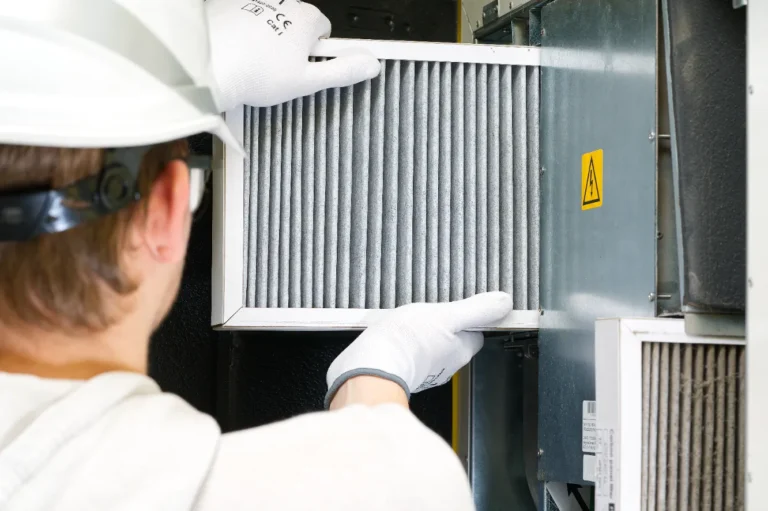- Phone Number: (831) 291-7653
- Email Address: seabrightheating@gmail.com
- Location: 1479 Vallejo St, Seaside, CA 93955
Comfort Isn’t Optional. That’s Why We’re Here.
We don’t just fix systems—we solve problems and deliver solutions that last.
How HVAC Systems Affect Indoor Air Quality

HVAC systems play a key role in maintaining indoor air quality for both homes and businesses. From filtering dust to balancing humidity, a well-maintained HVAC system can significantly reduce allergens, control mold growth, and promote healthier air.
HVAC Filters and Their Role in Allergen Control
Your HVAC system’s air filters are the first line of defense against airborne pollutants. These filters trap dust, pollen, pet dander, and other particles before they circulate through your space. Using a high-quality HEPA or MERV-rated filter ensures better protection against common allergens.
Over time, clogged or old filters can worsen indoor air quality by recirculating particles. To keep your air clean, replace filters every 1–3 months, depending on usage and filter type. Learn more about proper HVAC maintenance services to prevent allergen buildup.
HVAC Systems Help Manage Humidity Levels
Controlling humidity is essential for both comfort and air quality. HVAC systems help regulate moisture levels indoors, maintaining a relative humidity range of 30% to 50%. This range helps prevent mold growth, wood damage, and respiratory irritation.
In humid climates, adding a dehumidifier to your HVAC setup can enhance its ability to keep the air dry and healthy. In drier climates, a humidifier may be necessary to prevent dry skin, throat irritation, and static electricity.
HVAC Ducts and Indoor Dust Buildup
Air ducts are responsible for circulating air throughout your property. If neglected, HVAC ducts can accumulate dust, pet hair, mold spores, and even pests. These contaminants can then be blown back into your indoor space, reducing air quality and increasing allergy symptoms.
Professional duct cleaning services are recommended every 3–5 years or sooner if you notice excessive dust or musty smells. Clean ducts support better air circulation and reduce the load on your HVAC system.

HVAC Maintenance Supports Clean Air
Routine HVAC maintenance ensures that all components, from coils to fans, operate efficiently. A well-tuned system not only uses less energy but also reduces the risk of dust and moisture buildup.
Regular service includes filter replacement, coil cleaning, refrigerant checks, and thermostat calibration. If you’re a business owner, investing in ongoing commercial HVAC maintenance can help protect employee health and ensure compliance with air quality standards.
Choosing the Right HVAC System for Better Air
Not all HVAC systems are created equal. Some newer models come equipped with advanced air purification features such as UV lights, electrostatic filters, or air scrubbers. These additions can significantly improve air quality, especially in buildings with higher foot traffic or sensitive populations.
When upgrading or installing a new system, ask your HVAC contractor about indoor air quality options and energy efficiency ratings.
Improve Your Indoor Air with Professional HVAC Services
Your HVAC system does more than heat or cool your space—it directly affects the air you breathe. From managing allergens and moisture to reducing airborne dust, keeping your system clean and efficient is essential.
Want to breathe easier at home or work? Schedule a professional HVAC service today and take the first step toward better indoor air. For more HVAC tips and air quality insights, visit our Seabright Heating and Cooling blog.
